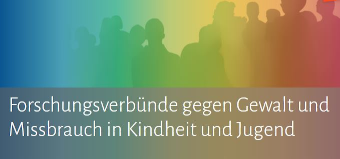The
UBICA II Project
Funded
by the Federal Ministry of Education and Research Germany
Mentalisation-based
Parental Training for Mentally Ill Parents – Supporting Families
with Access to the Psychiatric Support System not to Pass on
Their Own Burdens to the Next Generation
Recruitment
for our studies in Heidelberg, Berlin and Aachen has been
completed. The study will end on 31 December 2024. We are
currently busy analysing the data and will publish the first
results on this website shortly.
We would
like to take this opportunity to thank all the parent-child
dyads who took part in our extensive research and hope that the
parent training was perceived as helpful and supports families
in their everyday interactions.
The
training is now part of our regular therapeutic programme and
will hopefully relieve many more families.
Prof. Dr.
Sabine Herpertz, Ubica-II coordinator
Early abuse
in life can have serious and long-lasting consequences for both
the directly affected individual and the next generation.
read
more...
Data from
UBICA-I, including mother-child dyads from Heidelberg and
Berlin, show that early-life abuse is associated with behavioral
and neural changes, including personality traits and care styles
of affected mothers that negatively affect the relationship with
their child. The children of these mothers, who are affected by
early-life abuse, have an increased risk of being abused and
developing mental disorders.
They
also show increased cortisol concentration in the serum and
reduced inhibition control. Functional imaging showed that
traumatized mothers, unlike non-traumatized mothers, pay more
attention to negative than positive interactions with their
child. It seems important whether the mother experienced abuse
in the early life, but is resilient, which means that she has
not developed a mental disorder (until the time of the
examination) or whether she has developed a mental disorder in
addition to the early abuse in later life.
Children of
mothers with early-life abuse and lifelong mental disorder seem
to be particularly stressed, showing the greatest impairments
and risks.
Romuald Brunner,
UBICA-I coordinator
|
|










